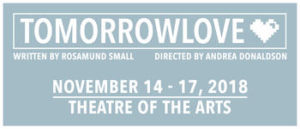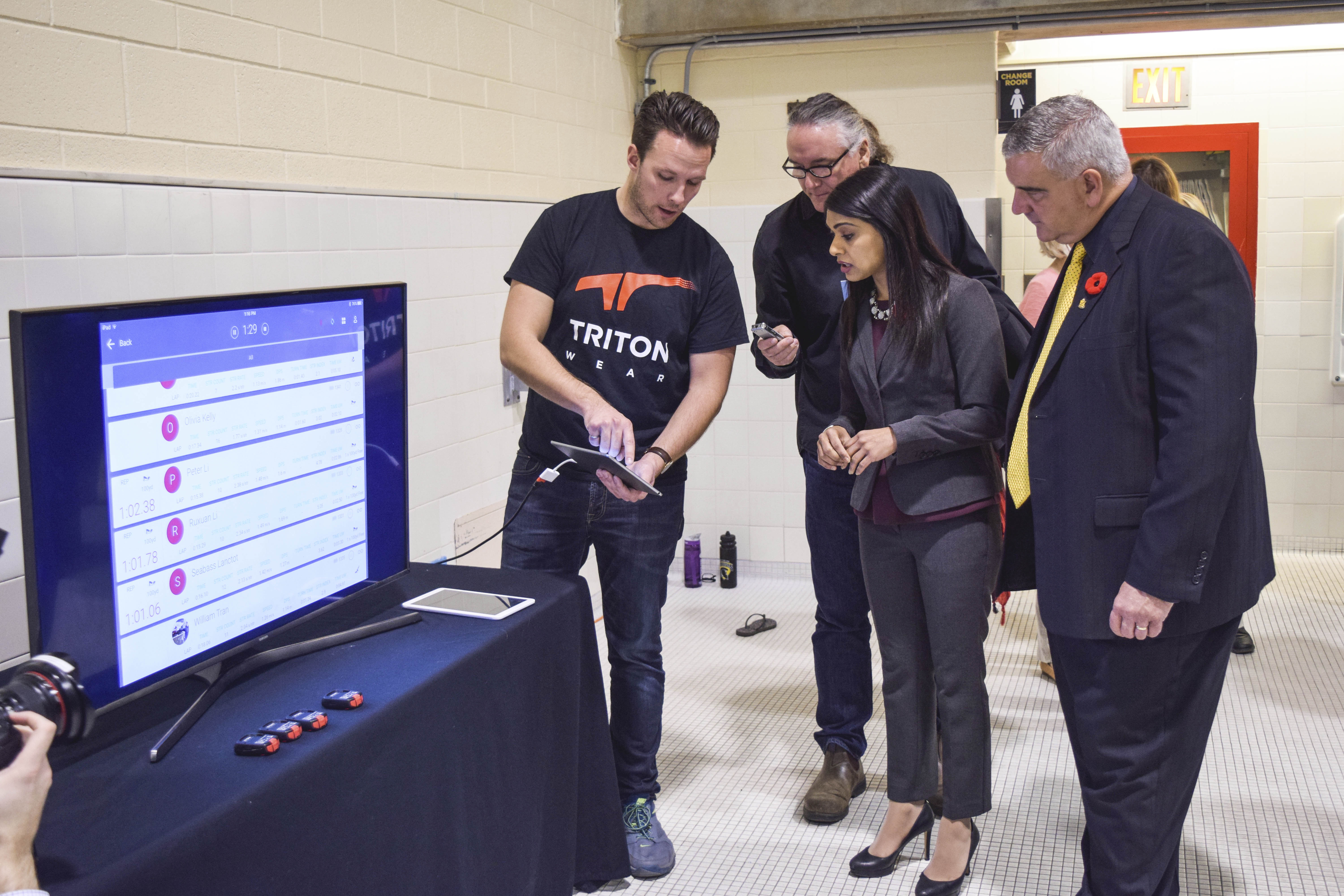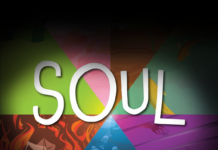by Faith Rahman
“Love can take on many forms. But at the end of the day, it’s still love,” Reid, a theatre and performance major and actor in the University of Waterloo fall production titled TomorrowLove, said.
TomorrowLove reimagines a near future where seemingly infinitely expanding refrigerators exist alongside virtual reality, exploring the intricate bond between relationships and technology through all gender neutra charactersl and can be played by anyone. The production, written by Rosamund Small in 2015, features seven playlets, each one an outlet to express a different realm of technological advancement. However, actors of TomorrowLove Reid and Eric Fiedler, another fellow theatre and performance major respectively, explained that while the theme of technology is present, it is not the focal point. Rather, it is there to accentuate human connections.
“It explores how, although technology may change, human relationships and interactions will not,” Reid said.
The actors explained that initially, TomorrowLove had been set up to choose several of the 15 origins playlets at random and actors would discover their roles the day of the performance. The chosen playlets would then be performed simultaneously in various rooms. As such, even the writer herself had only watched 13 of her playlets. At the University of Waterloo, however, audience members will be able to become completely immersed within seven of the playlets, which will be presented one after the other to experience “a very funny, poignant look at how technology is a pervasive figure in our lives”, Reid said.
Fiedler expresses that the production tells stories with which many individuals, including himself, can foster connections. For example, his character Charlie embarks on a transformative journey to obtain a “successful” or “perfect” appearance through a technology reminiscent of plastic surgery.
“There are a lot of people today who would like to change something [about themselves], whether it be their face or their body,” said Fiedler.
With a diverse cast and storyline, TomorrowLove allows for an experience that is just as diverse and personal for everyone. The production will run from Nov. 14-17, with two ASL interpreted shows on Nov. 14.
Having memorized, lived, and breathed their respective playlets for nearly two months, Reid and Fiedler look forward to speaking with the audience after the performance to discuss the themes and their fresh perspectives on it.
“Technology is now an inextricable part of our lives,” said Reid. “We can’t disconnect, because at this point it’s impossible to be completely disconnected from anything.”






























